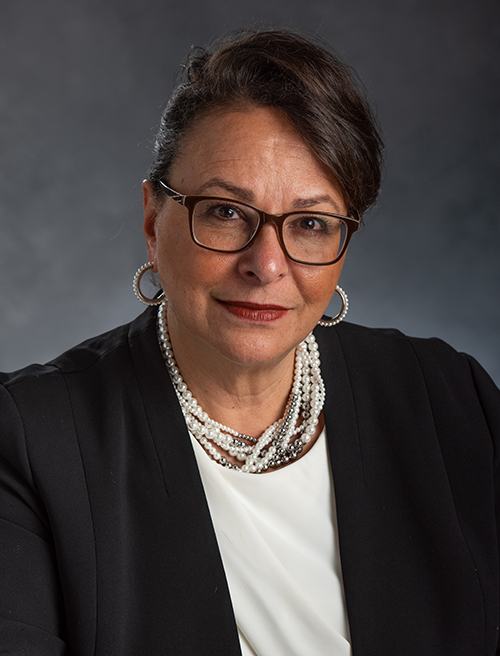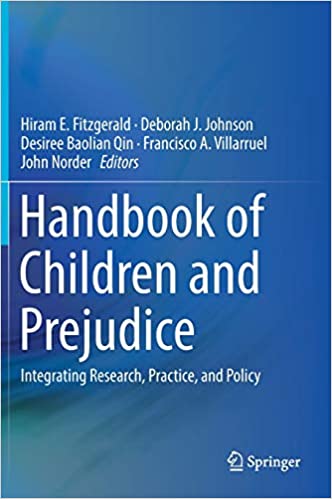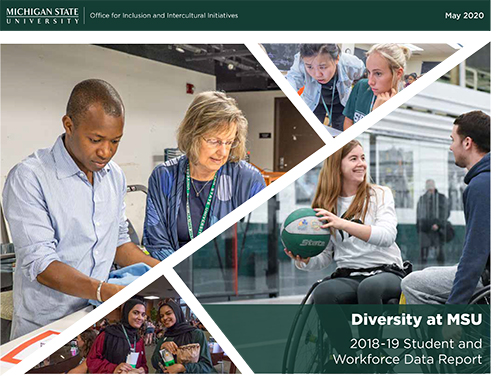May 2020 Update
-
Summer message from Paulette Granberry Russell
 Summer 2020
Summer 2020The challenges we are facing now, as a nation and as an institution due to the pandemic, are unprecedented in our lifetimes. Michigan State, like all of higher education, had to move quickly in its responses to COVID-19. Through that process and going forward, we recognize the differential impacts that the disease has wrought, and our responsibility to keep equity top-of-mind as we continue to evaluate our next steps.
All of us are struggling with massive adjustments in our daily lives; many of our students, though, are dealing not just with the disappointment of canceled events or the pain of social isolation. Their lives are in upheaval. Some of our students no longer have access to the technology they did on campus. Students, due to their DACA, undocumented, LBGTQ identities, or other factors may be more vulnerable under these circumstances than ever before in their lives. (Please see undocumented.msu.edu for resources regarding undocumented students. The LBGT Resource Center can also provide information.) Some have had to grapple with food and housing insecurity, loss of their own employment, and parents and other family members who are out of work.
National data indicates that COVID-19 is disproportionately affecting the health of people of color as well as older people, and even younger people are becoming victims in ways unanticipated. This directly impacts many of our friends, coworkers, and neighbors. Compounding these pressures is an increasingly visible presence of xenophobia and harassment directed at people of Asian descent. We remain committed to helping build a future for MSU that is inclusive and equitable, both in-person and online. We do this through outreach, scholarship, workshops, and advocacy. None of that has changed, even as the world has changed so rapidly around us.
We have adapted our MSU Dialogues program to reflect how COVID-19 is exacerbating pre-existing social and economic inequities, and we’re greatly appreciative of those MSU faculty and staff who have partnered with us for this important work.
The appetite to address the disparate impacts of the outbreak is substantial; a Handbook of Children and Prejudice: Integrating Research, Practice, and Policy, co-authored by Dr. Deborah Johnson, director of MSU’s Diversity Research Network, has seen over 20,000 downloads in 10 months. We are fortunate to have leading voices in this conversation on our campus and within the Office for Inclusion and Intercultural Initiatives.
I am happy to share that I will be engaging in further work around DEI at the national level, as I became president of the National Association of Diversity Officers in Higher Education (NADOHE) this past March. I am honored to continue to work with dedicated people from every corner of the country on making the contemporary university a welcoming place for everyone.
I am also honored to be working with a community of Spartans—especially those in the Inclusion and Intercultural Initiatives office—who have shown extraordinary resolve in doing our work in the midst of the extraordinary circumstances.
Paulette Granberry Russell, J. D.
Chief Diversity Officer & Senior Advisor to the President for Diversity
Director, Office for Inclusion and Intercultural Initiatives
-
A Handbook of Children and Prejudice: Integrating Research, Practice, and Policy
 Dr. Deborah Johnson, director of MSU’s Diversity Research Network
Dr. Deborah Johnson, director of MSU’s Diversity Research NetworkOur students on this campus have been affected by a range of minoritized and bias events this year. For those who may wish to understand the long term impact of these occurrences on our college students, this book touches upon the age groups and the factors that contribute to racialized and “otherizing” stresses that can lead to ongoing mental health compromises and disruption of one’s studies (impact of social media, changes in social circumstances, family and economic circumstances, first-generation concerns, LGBTQ experiences, and contexts, etc.).
This timely handbook examines the effects and influences on child and youth development of prejudice, discrimination, and inequity as well as other critical contexts, including implicit bias, explicit racism, post-immigration processes, social policies, parenting, and media influences. It traces the impact of bias and discrimination on children and explores the ways in which the expanding social, economic, and racial inequities in society are linked to increases in negative outcomes for children. Additionally, the handbook elevates dynamic aspects of resilience, adjustment, and the daily triumphs of children and youth, including sexually and religiously minoritized youth, faced with issues related to prejudice and differential treatment.
Fitzgerald, H. E., Johnson, D. J., Qin, D. B., Villarruel, F. A., & Norder, J. (Eds.). (2019). Handbook of Children and Prejudice: Integrating Research, Practice, and Policy. Springer. Dr. Johnson is an editor and author of 4 book chapters in the volume. To date, the book has generated an enormous amount of interest with 20,000 downloads in 10 months. Look for e-access in our MSU Library.
-
MSU Dialogues Transition in the Midst of the Pandemic
By Jackie Heymann
As COVID-19 has ravaged through our communities and world, we had to put our faculty/staff MSU Dialogues curriculum on pause until we can safely resume in person. Social justice work continues to be of the utmost importance, especially during this time. Therefore, we took a step back, reimagined what dialogue offerings would be most beneficial for this current moment, partnered with incredible faculty and staff around campus, and created a series of dialogues focused specifically on the ways in which COVID-19 has exacerbated a number of pre-existing social and economic inequities. Each week we will explore a different equity and inclusion topic through the lens of COVID-19, offering participants an opportunity to dialogue with colleagues about how they have been impacted, and collectively develop action steps we might all take to further equity and justice. Topics for the dialogues include racism toward people of East Asian descent; the intersection of race, socioeconomic status, and health inequities; the exacerbation of anti-fatness, education inequity, and disability.
Our first dialogue took place on April 15 and we were grateful to have 20+ faculty/staff members log on to join us for the hour-long session. Together, we explored the United State’s history of discriminating against people of East Asian descent and how that history informs the COVID-19-related racism many East Asians are experiencing today. We closed out our time together with action steps, including interrupting Anti-Asian racism when we encounter it and contacting our elected officials urging them to take a stand against the racism directed at East Asian communities.
Considering MSU Dialogues overall, many of our student dialogues continued in the online space! We are immensely grateful for the incredible group of student facilitators, as they wholeheartedly took on the challenge to transition their dialogues online. Swiftly and gracefully, they navigated new technology and continued to build their dialogue community online. As a result of the facilitators’ dedication and perseverance, the MSU Dialogues participants were able to continue their learning and growth, strengthen relationships within their group, and have a space to process some of the stress and sadness we’ve all been feeling. Thank you, from the bottom of my heart, to each MSU Dialogues facilitator!
With much to recognize and celebrate in these difficult times, even our traditional end-of-year celebration is shifting. In lieu of postponing or canceling, it is important to honor the commitment of all of the participants and facilitators, especially with regard to the challenges we face. We plan to do just that in an online celebration on April 21. We wish to thank everyone involved in the MSU Dialogues Program for the continued efforts to make our communities more equitable and inclusive spaces.
If you are interested in participating in MSU Dialogues in the future, please complete this form and we will be in touch with you in mid-August.
If you have any questions, please reach out to MSU Dialogues Coordinator, Jackie Heymann. -
2018-2019 Data Report
 For the past 40 years, the MSU Board of Trustees has presented an annual report on Michigan State University’s diversity efforts and outcomes. This report is a compilation of data and brief descriptive narratives organized by race/ethnicity, gender, and disabilities among student populations and workforce.
For the past 40 years, the MSU Board of Trustees has presented an annual report on Michigan State University’s diversity efforts and outcomes. This report is a compilation of data and brief descriptive narratives organized by race/ethnicity, gender, and disabilities among student populations and workforce.

